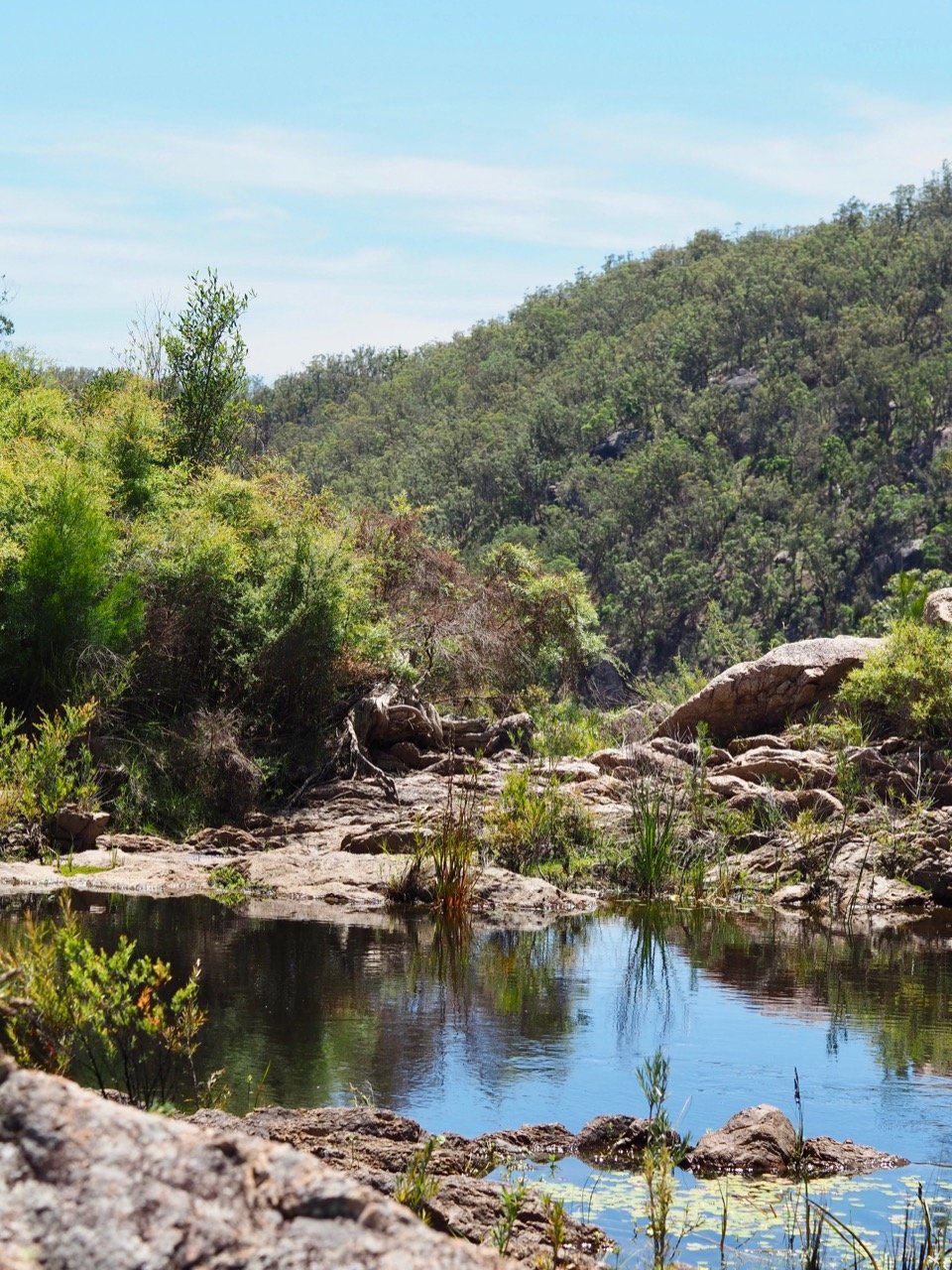OUR BEAUTIFUL BACKYARD: LIFE+LEISURE
Rediscovering the Australian landscape reinforces a life lesson on the true joy of travel, writes Nina Karnikowski.
Walking through the bush, the spinning thoughts start to drift from my mind, leaving space for the living, breathing world to enter.
The longer my hiking boots crunch along the trail, the more I seem to notice. Fungi blooming from the scorched trunk of a eucalypt, the lazy drone of pollen-drunk bees hovering over frothy white wildflowers, the flurried swish of a lizard taking cover under a nearby wattle bush. By the time my husband and I arrive back at camp, I feel altogether more human, altogether more part of the interconnected web of life surrounding us.
Days like these have been medicine for me and for many others since the word ‘‘COVID’’ first slipped into our consciousnesses 18 months ago. Slow days spent camping and hiking and refamiliarising myself with the Australian landscape have provided a refuge.
They have also left me wondering whether the reset I was flying halfway across the world to get, up to 10 times a year, might be found just a few hours’ drive from home.
When life begins to feel oppressive, when my mind starts to whirr and sleep begins to feel like a distant memory, I do the thing I now know works best to recalibrate a rattled mind and body: throw the tent in the car and go bush. Ergo no extortionate plane ticket, no cancelled flights or sudden border closures and, most importantly, no monstrous carbon footprint.
It’s incredibly tempting, of course, to jump on the first plane out of the country following this forced period of stillness. But if the pandemic has taught us anything, it’s that we have been living and travelling at a pace that’s too fast and heavy for our fragile planet to handle. And that slowing our consumption of everything right down, and developing a greater sense of stewardship of the natural world as we do that, is more urgent than ever.
During the first bout of lockdowns, The New York Times reported that residents in northern India could see the Himalayas more clearly than they had in three decades because of the dramatic drops in air pollution. In the United States, studies showed that in just a matter of weeks the songs of sparrows recovered the acoustic quality they’d had decades ago, when city life was less noisy. Many of us reflected, too, as we stepped into our neglected gardens and walked the forgotten bush paths near our homes, that there won’t be a world worth seeing in years to come if we don’t start seeing it the right way now.
It’s these things I’m trying not to forget as travel opens up again, and as I try to lower my ecological footprint by developing a ‘‘less but better’’ attitude to overseas jaunts.
As David Wallace-Wells writes in his bestselling 2019 book The Uninhabitable Earth, every plane seat from New York to London melts another three square metresof Arctic ice, and burns the same amount of carbon as eight months of driving.
Which bears questioning, before booking that next long-haul flight, whether what weseek most from travel – an opportunity to expand, gain perspective and engage with something bigger than ourselves – might be found right here at home. At least some of the time.
As my husband and I hike again in the afternoon, scaling Australia’s largest granite rock formation – the 247 million-year-old Bald Rock, towering 200 metres above the NSW border with Queensland – I’m reminded that I don’t matter nearly as much as I think I do. The ego relief that comes from this returns me to a childlike state of wonder, when everything is miraculous and enchanted. Which is another antidote for our rather spoilt modern selves, who often feel like things aren’t ever as exciting or special as they should be.
Nature-based journeys are also a balm for our technology- and information-soaked times. Studies in Italy and Japan have shown that being immersed in nature makes our brains healthier, increases our attention span and creativity, and lowers blood pressure, heart rate and stress levels.
After two days in the bush without mobile service, it’s as if a veil has been lifted. I notice gaps start to open between my thoughts, which allow me to see everything a little more clearly. When I observe a mother and baby kangaroo feeding next to our tent, I think about how they know nothing of vaccine arguments, the dramas of our government, or the economy, which helps put my melodramas into perspective.
As we cook dinner on the fire and, later, gaze from inside our tent up at a black sky bursting with stars, I feel a rare, spacious sense of enoughness. For someone who has searched the globe for this sense of fulfilment, feeling it now galvanises my desire to stop clinging to the travel ways of old; to set myself adrift, holding all the lessons the past two years have taught us close to my heart, and remembering how much we have to gain by doing a little less of everything – and how much we stand to lose if we don’t.
This story first appeared in print below and online here

